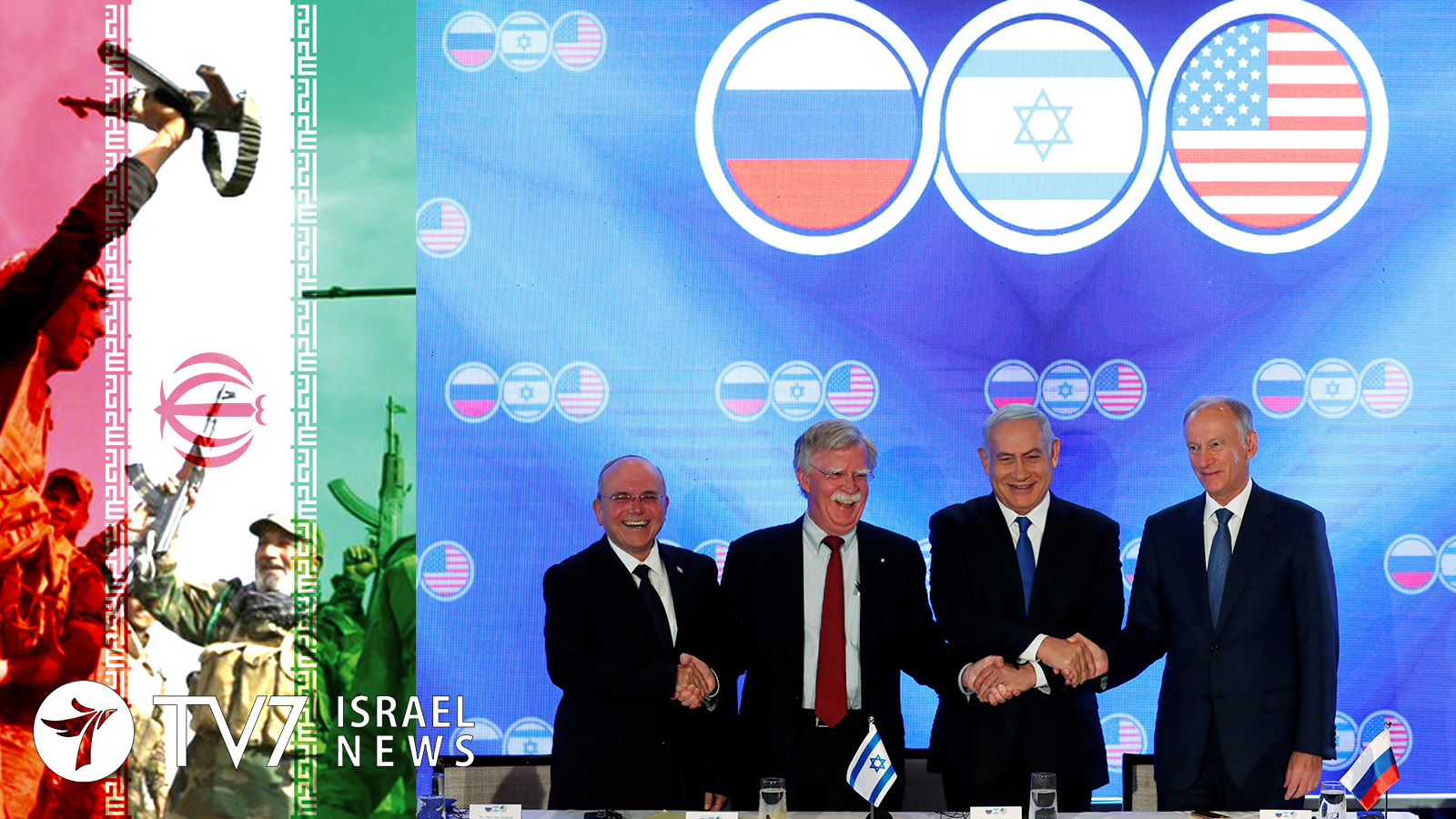The trilateral summit of the Russian, American and Israeli National Security advisers concluded in Jerusalem yesterday – in what a senior Israeli official referred to as “a historic meeting that highlighted significant role Israel plays in resolving the region’s challenges for the sake of a brighter future.”
The Israeli official, who spoke to TV7 following the meeting, indicated a general agreement between Washington, Moscow and Jerusalem on three points that are essential for Syria‘s future had been reached. The points include: “the future plans for resolving the Syria conflict will be implemented only once a consensus is reached between United States and Russia.” “Syria will not serve as a military base from which it could threaten its neighbors.” And, “the stability of Syria is dependent on the departure of Iranian forces.”
Meanwhile, Secretary of the Russian Security Council Nikolai Patrushev emphasized following the meeting that Moscow and Jerusalem will ensure “more effective cooperation” to avert future Israeli strikes on its northern neighbor, Syria. “We’ve said that this (potential Israeli air strikes on Syria) is undesirable, we’ve said that we should ensure more effective cooperation between the defense ministries of Russia and Israel so that many strikes could be prevented with aim to confine the situation which concerns Israel by non-military means,” Patrushev said.
Despite the reason behind the Israeli strikes against Syria, all of which have been aligned with Jerusalem’s declared red line; Patrushev underscored that the Islamic Republic of Iran was and will remain Russia’s ally – rejecting the Israeli and American position in according to which Tehran is the root of regional instability and terror. According to him: “Iran has been and remains our ally and partner with whom we consistently develop our relations both bilateral and in multilateral format, which means any attempts to portrait Tehran as a main threat to regional security or bring it into line with ISIS or other terrorist groups is unacceptable for us.”
From a different location in Jerusalem, U.S. National Security Adviser John Bolton held a press conference of his own, during which he reiterated that unless the Islamic Republic of Iran changes its behavior – the United States will ratchet up its efforts against the Ayatollah regime, until the time when the Mullah’s are ready to return to the negotiating table. The U.S. National Security Advisor ascertained that “They’ll either get the point or, as the president said I think very cogently yesterday morning, in imposing sanctions on the supreme leader, that we will simply enhance the maximum pressure campaign further. It will be, I think, the combination of sanctions and other pressure that does bring Iran to the table.”
